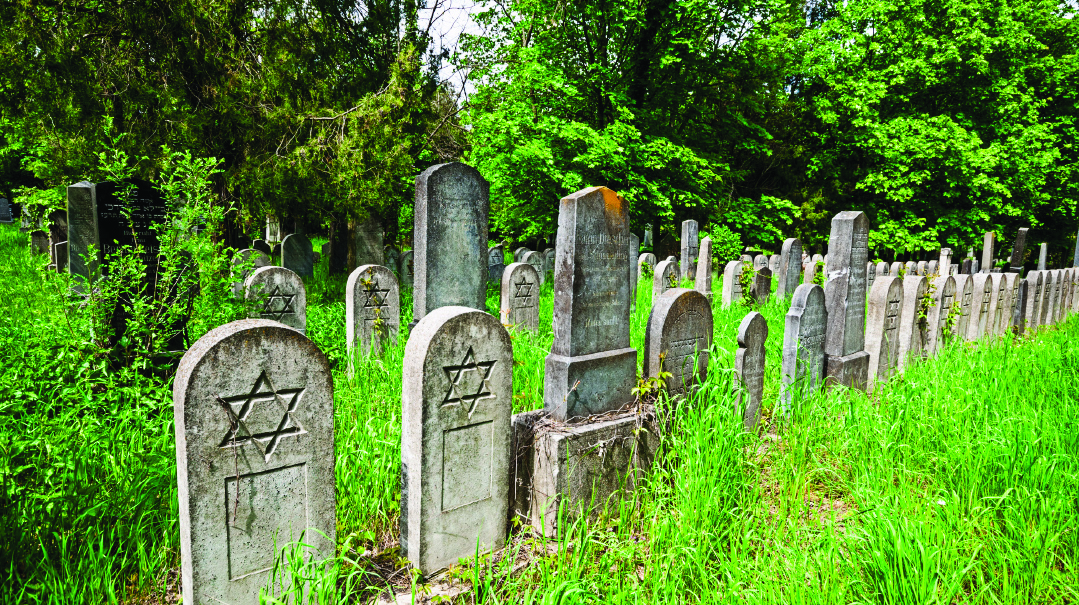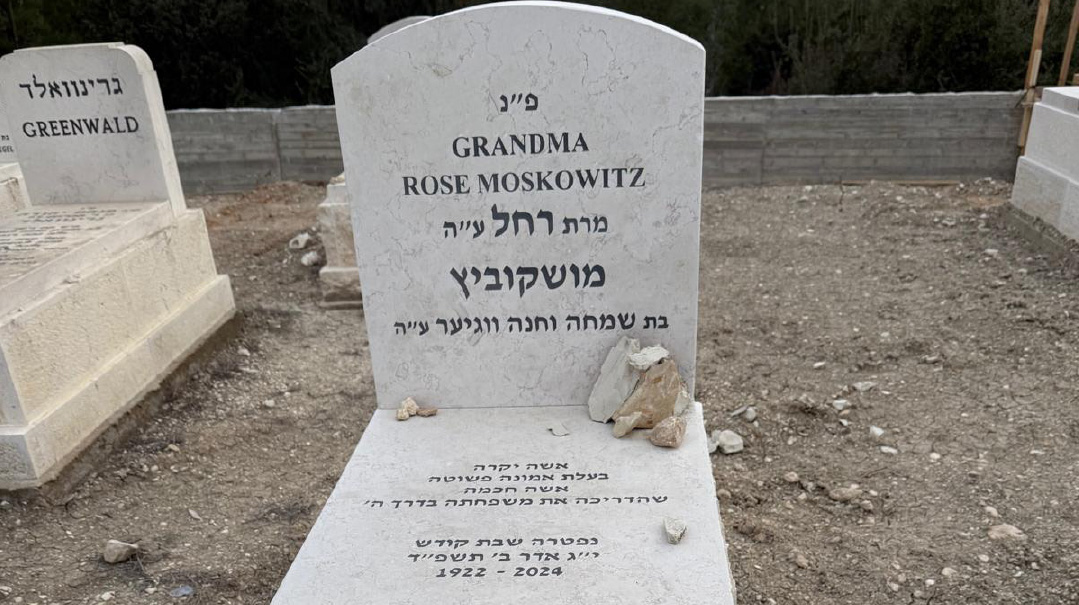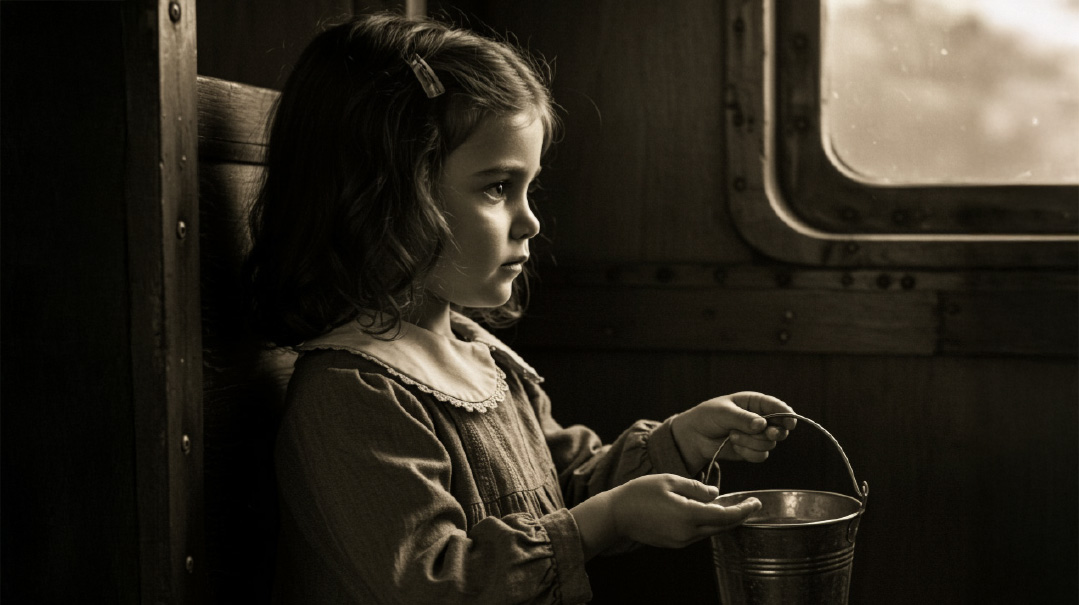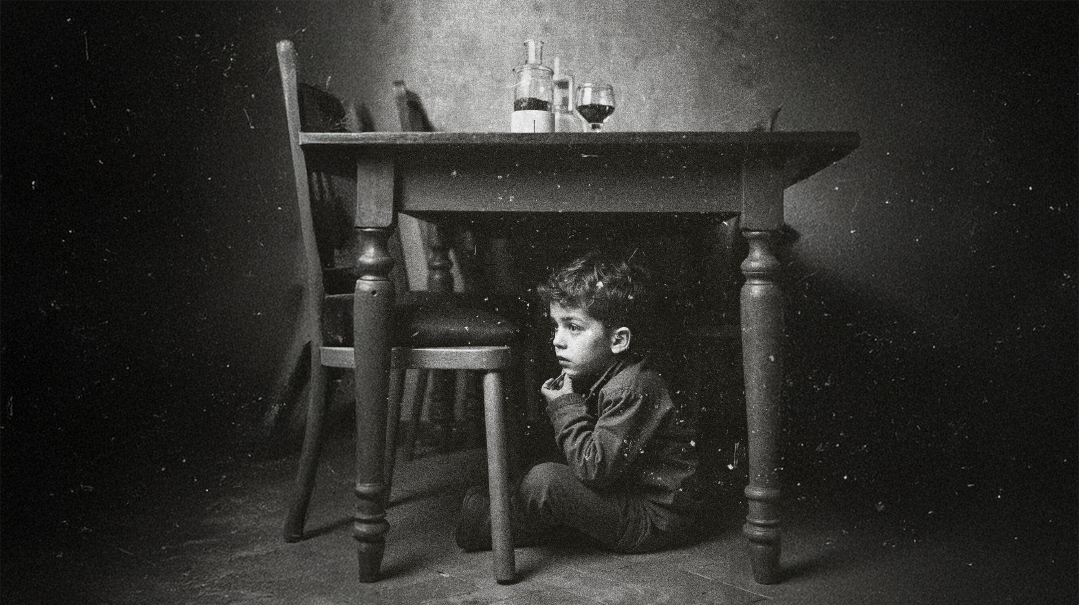One Day

They walked along endless rows, peering at the names of the dead, looking for the tall matzeivah of Reb Yosef HaKohein

Sixty-three years after the war, my grandfather and an uncle got a chance to go back to the Hungary that was.
My grandfather was born in America, after the war, but he’d grown up on the stories. He knew the who, what, and when of the world that was before. He could tell you about the rich family tree, every last leaf. He could emphatically declare where your talent for singing, oratory skills, or whatnot, came from.
Going back was always on his agenda, and the opportunity finally arose when his rebbe made a trip to Eastern Europe, and a grandson from Eretz Yisrael was going to go to have his tefillin leigen. They would spend a beautiful Shabbos together with the Rebbe, but first take their own long-anticipated trip. He, my grandmother, and a son would land in Budapest Wednesday morning for a day and a half of exploring the places where our ancestors had lived and died.
They were going to do Oberland and Unterland, but he left the itinerary to his son, Moti. They had just a small window of opportunity, and Moti would figure out distances and what made sense.
As it happened, however, my grandfather wasn’t too pleased with Moti’s plans. Moti had decided on Unterland for Wednesday afternoon, and Oberland, from where it was easier to get to where the Rebbe was, for all of Thursday. The problem was that the bulk of the kevarim they wanted to visit were in Unterland and they really should’ve given Unterland the full day. But my grandfather only explained this when they were already in the car, driving from the airport, and there was nothing much to do about it. They’d see what they could get out of the afternoon.
They found the first cemetery quite easily. They davened and went on. They wanted to get to a place called Rohot, where Zeidy’s grandparents were buried. An old map and bits of information from other family members were what they had to go by.
After miles on the highway, they turned onto a dirt road even more remote than it first looked; soon they were crossing a cornfield, through stalks of corn meters high. On the edge of the field was a big beis hachayim, bordered by a gate, rusty and padlocked. They looked around; this was a truly isolated place without another person in sight. Would they really have to turn back?
They looked back at the yellow Yam Suf they’d just traversed, and Moti worked at the lock and was finally able to open the gate.
The place was dense with overgrowth and kevarim. Shadow and sun and stone upon stone. They were looking for the Katzes: Reb Yosef HaKohein and his wife, Frumet. They knew the kevarim should be side by side, and the information they had was that the Zeide had a large standing matzeivah, while the Bubbe didn’t.
But the place was far bigger than they’d thought, and many of the matzeivos were crumbling. They started off looking together, struggling to make out words once deeply engraved in stone. Finally, they realized they’d have to set off in different directions to have any chance of finding their ancestors. They walked along endless rows, peering at the names of the dead, looking for the tall matzeivah of Reb Yosef HaKohein. In the waning light of the afternoon, it seemed a wild goose chase. They didn’t know the dates of their deaths; they knew nothing more than the early 1930s. An hour passed, dust and earth swirled in the light, covered their tired feet, their coats, their searching fingertips.
They were overwhelmed by the sheer number of dead, by the world that once was.
They continued on in the echoey stillness, the noises of the living — the trees, the birds, their own breathing — amplified by the silence of the dead.
Suddenly, Moti called out, “I think I found the Bubbe, but—”
They came over and they read, Frumet eishes Reb Yosef HaKohein, a large, rising matzeivah. Could this be it? Wasn’t it the Zeide’s that was standing? It seemed they’d been misinformed.
My grandfather took a cloth and started to brush off the dirt obscuring the words. It was her. Their grandmother.
He dusted off the date. Vav Tammuz.
The summer air went cold. My grandfather stood with the cloth, with a siddur, frozen, still as a headstone. Beside him the slow gasp of my uncle’s breath.
It was late in the afternoon of Vav Tammuz.
They’d never known her yahrtzeit. They’d had this tiny slice of time to come back to Hungary. He hadn’t wanted to go to Unterland on the Wednesday. But here they were, and it was thankfully, beautifully, still Wednesday, still Vav Tammuz.
Hashem had planned their itinerary, so that decades after her death, they could be here on her yahrtzeit to daven, to connect with what was and with where they were coming from.
Zeidy looked up at the stone of the illustrious grandmother his father spoke of. His sister was named for her. He was her grandson and he was going, tomorrow evening, to put tefillin on for his grandson, her great-great-great grandson who lived in Eretz Yisrael, a place Frumet of 19th-century Hungary could only dream of.
They stood there, all three of them, reflecting and davening under the cover of the trees and stones. In the immensity there was a sense of loss; how many descendants of this graveyard had perished in the war of wars? There were all the requests tumbling in their own hearts, yeshuos they desperately needed.
But there was His plan, precise as a pin.
Precise as one day out of hundreds in the calendar.
They left through the rusty gate and made their way back through the cornfield as night fell on Vav Tammuz.
Rivka Streicher is a writer, writing teacher, and co-founder of the Summer School of Writing Craft.
(Originally featured in Mishpacha, Issue 865)
Oops! We could not locate your form.






